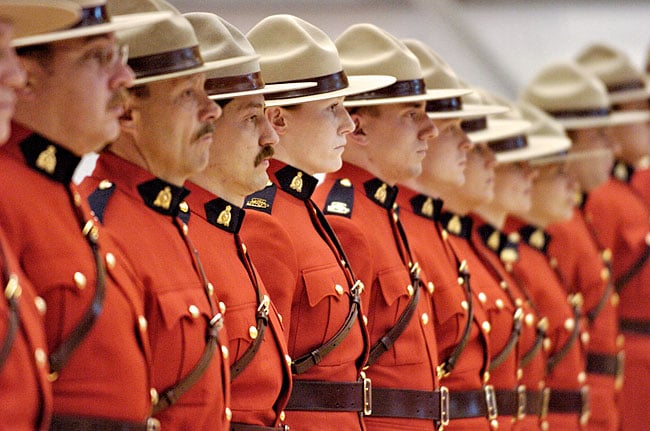A ruling that senior
RCMP officers mercilessly harassed a sergeant after deciding he had lied about his run for political office should be set aside as flawed, the federal government said Thursday.
In its notice of appeal, Department of Justice lawyers argue Ontario Superior Court Justice Mary Vallee made numerous mistakes, including forcing RCMP Commissioner Bob Paulson to testify, and relying on evidence from a confidential informant.
``The trial judge made errors of laws and palpable and overriding errors of fact in finding that the conduct of the (RCMP) was outrageous,'' the notice states.
The notice also takes issue with Vallee's assessment of the credibility of various witnesses.
At trial, Sgt. Peter Merrifield, who joined the RCMP in 1998, testified his superiors waged a seven-year campaign to damage his reputation that included punitive transfers and unfounded criminal accusations after he took part in a federal Conservative nomination meeting in Barrie, Ont., in 2005. Merrifield testified that one superior, Supt. Marc Proulx, was critical of various Conservative policies on the firearms registry and the definition of marriage.
Someone also leaked confidential and damaging information about him to the media.
The father of three, who said he had been upfront about his political views and activities, sued Proulx, Insp. James Jagoe, and the RCMP. He said he had been forced to take medical leaves to deal with depression and the stress of the situation.\
In awarding Merrifield $141,000 for his mistreatment, Vallee denounced the RCMP's conduct as flagrant and egregious.
``The defendants had a reckless disregard of causing the plaintiff to suffer emotional distress. His emotional distress was severe,'' Vallee wrote in her 174-page decision. ``The defendants' outrageous conduct was the actual and proximate cause of the plaintiff's emotional distress.''
Merrifield's lawyer, John Phillips, expressed disappointment that the RCMP and government were appealing in light of the ``very strong and supportive findings'' Vallee made.
``The appeal is going to be vigorously defended,'' Phillips said in an interview.
The lawyer also said he would be seeking ``substantial'' costs from the government for ``wasting public funds to continue the harassment of a very decorated officer of the RCMP.''
The Justice Department, however, argues in its appeal notice that Vallee was wrong to find the government, Jagoe and Proulx liable for a new ``tort of harassment'' or that the defendants had deliberately harassed the sergeant or had a ``reckless disregard'' for the distress they caused him.
The appeal notice also asserts that Paulson was ordered to testify even though he had no relevant evidence to give.
Paulson testified at trial that he had been led to believe Merrifield was a disgruntled employee whose accusations against his superiors were groundless. The defence also painted Merrifield as an unreliable and untrustworthy witness.
Vallee, however, found him credible and said Proulx's decision to move Merrifield out of national security work was ``unjustified and punitive'' and resulted in a ``permanent stain'' on his reputation and career.
She also concluded Proulx ordered an audit of Merrifield's credit card expenses in 2012 without asking for an explanation or offering specifics at about the time the RCMP knew of a substantiated allegation that the superintendent had procured a prostitute _ misconduct Merrifield had complained to Paulson about.
It's not clear when Ontario's top court will hear the appeal.

